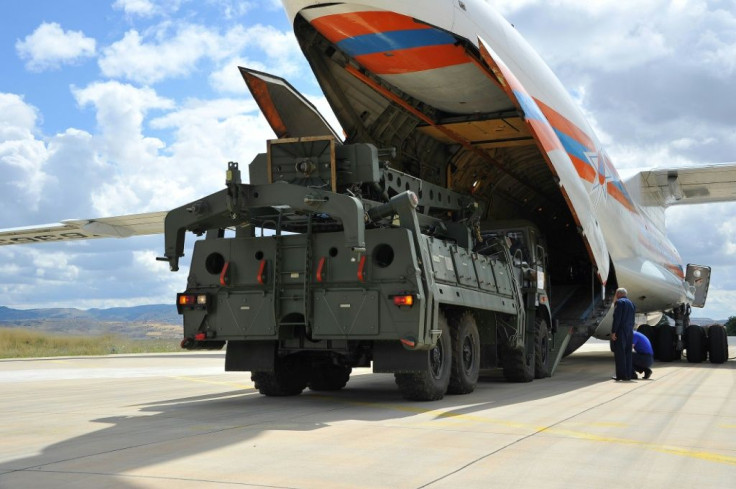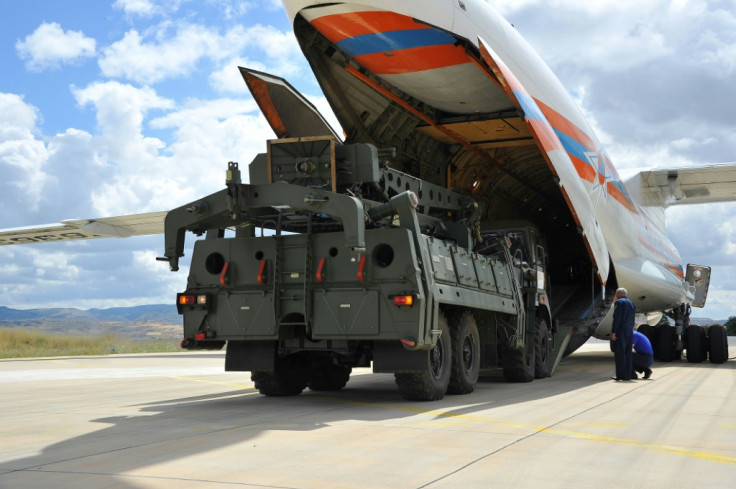India Ignores US Warnings, Receives Delivery Of S-400 From Russia

Ignoring the threats of sanctions from U.S., India has started receiving advance elements of the state-of-the-art S-400 air defence system from Russia ahead of President Vladimir Putin's visit to the country in December
Though deliveries were to begin last year it was extended due to payments issues and coincides with Putin's India visit next month.
The surface-to-air missile system, which Stockholm International Peace Research Institute (SIPRI) described as "most advanced air defense systems." is vital for India as rival China possessed them way back in 2014.

Dmitry Shugaev, director of Russia's Federal Service for Military-Technical Cooperation (FSMTC), told official Russian news agency Sputnik ahead of the Dubai Airshow: "The supplies of the S-400 air defense system to India have started and are proceeding on schedule."
India is planning to deploy the first batch of the advanced missile system on its western border, which suits better to tackle threats both China and Pakistan at the same time.
The surface-to-air missile system has four different missiles which can engage enemy aircraft at 400km, 250km, the medium-range 120km and the short-range 40km. Over 100 personnel of the Indian Air Force, who have trained in Russia, will take charge of the S-400 system at a time when India is locked in a sporadic standoff with China in the Himalayan sector.
China has already deployed two S-400 squadrons at the autonomous region of Tibet.
By defying the US sanctions and opting for S-400 missile system, India has also kept Russia away from providing Pakistan with similar equipment as India.
The missile system, capable of taking out enemy aircraft and cruise missiles from a distance of 400km, is brought to India via the sea and air routes. The hardware has already reached the country.
Meanwhile, the United States is mulling exempting India from the US law -- Countering America's Adversaries Through Sanctions Act (CAATSA) -- that authorizes the administration to impose sanctions on nations that purchase defense hardware from Russia.
Though procurements from Western nations and Israel are on the rise, there are many big-ticket Indo-Russian deals, including $the 3-billion plan to lease a Russian nuclear-powered Akula Class submarine, in the pipeline.
The US fears that allies like India buying the adversary's defense platforms and technologies will either expose or to put at risk its own defense system.
So far, the Biden administration has not hinted at waiving sanctions against India. In response to reports that Russia has started delivering the S-400 to India, a White House spokesperson said the act does not have a blanket or country-specific provision.
India figures prominently in its strategic goals against China. However, not acting against India would draw criticism from nations that are facing the US sanctions currently.
If attempts were made to slap CAATSA on India it will take India to the Russian camp and mega Indo-US arms deals, a major source for the US, would be lost.
The Biden administration is having a second thought into putting the growing Indo-US ties onto a slippery slope for a defense procurement. But Putin got a shot in the arm ahead of his India visit.
























